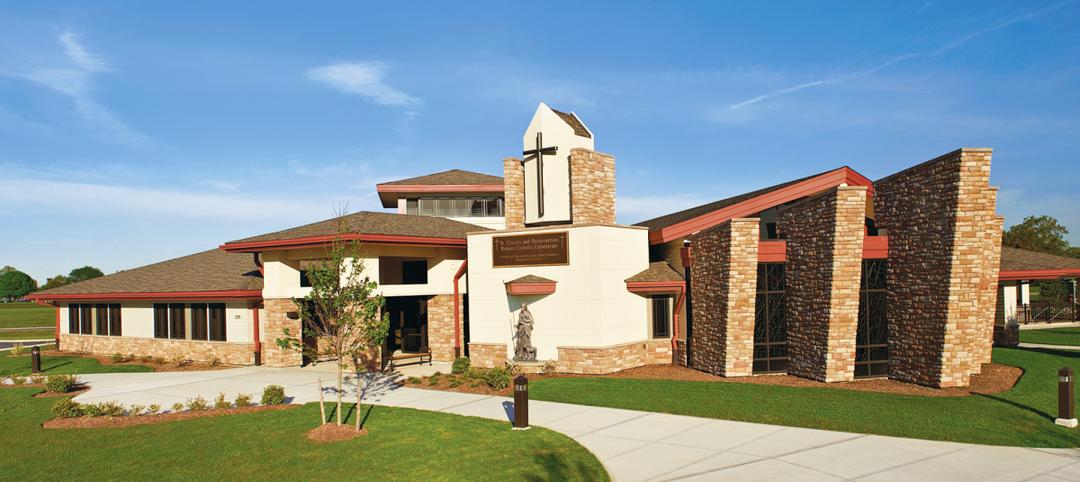About a year ago, Education Credit Management Corp. Group (ECMC Group), a nonprofit organization, finalized its acquisition of more than 50 Everest and WyoTech campuses from the now-defunct Corinthian Colleges chain. To execute that transaction, ECMC Group launched a subsidiary, Zenith Education Group, which provides career school training. This acquisition created the largest nonprofit career college system in America.
Upon closing this deal, Zenith began implementing key improvements in program quality, affordability, completion and job placement rates, and accountability and transparency.
Among Zenith’s initiatives was its Campaign for Innovation, sponsored jointly by ECMC Foundation and ECMC Innovation Lab, to encourage creative, actionable, and measurable ideas from campus employees about promoting student success. Greg Schuman, an electrician instructor at Zenith’s Tampa, Fla., campus, submitted an idea for Zenith to partner with the National Center of Construction Education and Research (NCCER) to be able to offer students NCCER certification upon their completion of electrician, HVAC, carpentry, or plumbing training.
Zenith’s 20-hour-per-week, nine-month program will give students much of what they need to know in order to be workforce day-one ready. And with the certification from the industry recognized NCCER, Schuman believes students who complete this program should be able to skip entirely the classroom part of any apprenticeship.
The Foundation liked Schuman's idea, and gave him a $36,095 grant to get his proposal off the ground. Next month, 15 of Zenith’s instructors will convene in Tampa to start learning to become NCCER-certified trainers.
Tampa is one of the nine Zenith campuses with building-trade programs that will offer this certification. The others are in Orange Park, Fla.; South Plainfield, N.J.; Chesapeake, Va.; Southfield, Mich.; and the Texas campuses at San Antonio, Arlington, Austin, and Houston.
In an interview with BD+C, Schuman explained that traditional apprentice trade programs typically involve both in-classroom and in-field training that can take several years to complete. “What we’re doing is frontloading the technical instruction part so the students will already have the classroom training” when they get hired.
Zenith’s 20-hour-per-week, nine-month program will give students much of what they need to know in order to be workforce day-one ready. And with the certification from the industry recognized NCCER, Schuman believes students who complete this program should be able to skip entirely the classroom part of any apprenticeship.
A knowledgeable, trained student is a valuable asset to construction firms at a time when their industry is flourishing and qualified workers are in shorter supply.
The Associated General Contractors of America (AGC) reported last week that the construction industry added 125,400 nonresidential jobs in 2015, a 3.2% increase over 2014.
“With the construction industry expanding at rates not seen since the downturn, public officials need to make sure we are encouraging and preparing students to consider high-paying careers in construction,” said Stephen E. Sandherr, the association’s CEO. “As our Outlook makes clear, the industry is likely to continue expanding this year, as long as there are enough workers available for firms to hire.”
A survey conducted by AGC and Sage Construction and Real Estate found that 71% of construction firms polled plan to expand their payrolls in 2016.
Schuman believes the certification program will give Zenith graduates a leg up at companies that hire them. Between 500 and 1,000 students will be involved in the program’s first year, and Schuman anticipates that several other Zenith campuses might begin offering building trade training if this program is successful.
Success will be measured primarily by placement rate, which now hovers around 60%. Zenith’s goal is 70%.
Related Stories
| Oct 4, 2011
GREENBUILD 2011: Johnsonite features sustainable products
Products include rubber flooring tiles, treads, wall bases, and more.
| Oct 4, 2011
GREENBUILD 2011: Nearly seamless highly insulated glass curtain-wall system introduced
Low insulation value reflects value of entire curtain-wall system.
| Oct 4, 2011
GREENBUILD 2011: Ready-to-use wood primer unveiled
Maintains strong UV protection, clarity even with application of lighter, natural wood tones.
| Oct 4, 2011
GREENBUILD 2011: Two new recycled glass products announced
The two collections offer both larger and smaller particulates.
| Oct 4, 2011
GREENBUILD 2011: Mythic Paint launches two new paint products
A high performance paint, and a combination paint and primer now available.
| Oct 3, 2011
Magellan Development Group opens Village Market in Chicago’s Lakeshore East neighborhood
Magellan Development Group and Hanwha Engineering & Construction are joint-venture development partners on the project. The Village Market was designed for Silver LEED certification by Loewenberg Architects and built by McHugh Construction.
| Sep 30, 2011
BBS Architects & Engineers completes welcoming center at St. Charles Resurrection Cemetery
The new structure serves as the cemetery's focal architectural point and center of operations.
| Sep 29, 2011
Submit your Great Solutions
Profiles of Great Solutions will appear in December 2011 issue of Building Design+Construction.
| Sep 29, 2011
Busch Engineering, Science and Technology Residence Hall opens to Rutgers students
With a total development cost of $57 million, B.E.S.T. is the first on-campus residence hall constructed by Rutgers since 1994.















